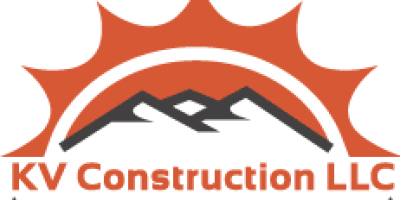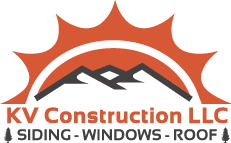A house is only as good as the whole of its parts. When a piece breaks due to old age or low quality, the house’s performance becomes compromised. One of the crucial components for homeowners to pay attention to is the siding. The siding is liable for keeping you and your loved ones shielded. It also plays an essential role in energy efficiency and the overall insulation of your home.
While there are several siding options available for homeowners in Seattle City, two of the most highly ranked options are insulated vinyl siding and fiber cement siding. Despite their respective popularity, both options are significantly distinctive. They give numerous pros and cons to consider before choosing between the two. At KV construction, we commit ourselves to find the best options on the market and bringing them to homeowners in Seattle City. In this article, we’ll break down these two premium options and explain which of them comes out on top according to our team of specialists.
What Is Insulated Vinyl Siding?
What Is Fiber Cement Siding?
Analyzing Pros And Cons Of Both Materials
Vinyl Siding
Pros
Insulation: As its name indicates, this siding option works wonders in giving insulating quality or R-value for homeowners.
Durability: Compared to its standard cousin, this option is much more durable and can withstand more incredible wind speeds and more destructive forces.
Appearance: Due to its thickness, the siding is better qualified to maintain its appearance over time. Also, it produces a sharp profile that only improves curb appearance for homeowners.
Cons
Higher Installation Cost: While not as expensive as some other materials, the cost increase from standard vinyl siding to insulated vinyl siding is significant.
Installation Issues: Insulated siding requires more attention and expertise than regular vinyl siding. For this reason, inappropriate installation is even more damaging for this option than some other options.
Fiber Cement Siding
Pros
Non-Combustible: This siding option doesn’t ignite even when exposed to fire and won’t add fuel to the fire if one breaks out.
Environment Protection: Fiber cement siding is specially designed to withstand environmental matters such as moisture or rot, unlike other materials.
Multiple Climates: No matter the weather, fiber cement siding is a proven option for homeowners. It can handle the coast conditions and stands up to different weather types, ranging from blizzards to hurricanes.
Pest Resistance: Pests such as termites, spiders, woodpeckers, and other animals have no desire to be around this material, making fiber cement a very nice pest barrier for your home.
Cons
Installation Difficulty: This material requires someone trained and certified in fiber cement siding installation due to its heaviness. For this reason, DIY installation isn’t a decision with this material. Also, when fiber cement is cut, it releases known carcinogens in the air, which is why trained professionals with the right equipment should handle this project.
High cost: The heavyweight, professional installation requirement, and higher cost of this material can make this option less desirable for some. However, the long life of this material, exceptional ROI, and low maintenance requirements of fiber cement will mitigate the initial higher costs – making it more cost-efficient than vinyl options in the long run.
At this point, you have a pretty good idea of what each option has to give. Now it’s time to make a decision. Fortunately, the siding industry is a heavily competitive one. It means that many siding options on the market will perform well. However, as with any home improvement material, some of them will outperform others and produce better and longer-lasting value for your home.
You’ll want to choose insulated vinyl siding if budget is a concern for you. While this option may cost higher and is trickier to install than its standard analog (affordable vinyl siding), it costs less. It is less difficult to install than fiber cement siding.
However, it’s best to choose fiber cement siding if durability and the capacity to withstand weather is more of a concern. The Northwest is known to have heavy rains and humid weather. One day there could be hailstorms, and the next day will be thunderstorms. Winter brings heavy rains. Fiber cement siding is more capable of standing steady against such weather changes.
At KV construction LLC, we highly recommend James Hardie siding options for homeowners living in Seattle City. For more information about how fiber cement siding can increase your home’s look, performance, and overall value, our team of expert contractors is here for you. To get started with a free, no-obligation estimate, give us a call now or fill out our online form for more information.
Making A Decision
As siding contractors in Seattle, we know a house’s integrity relies on the quality of its components. When parts age or fail, your home’s performance is compromised. Siding is vital, protecting your loved ones and contributing to energy efficiency and insulation. Trust us to ensure your siding upholds the safety and comfort of your home.


